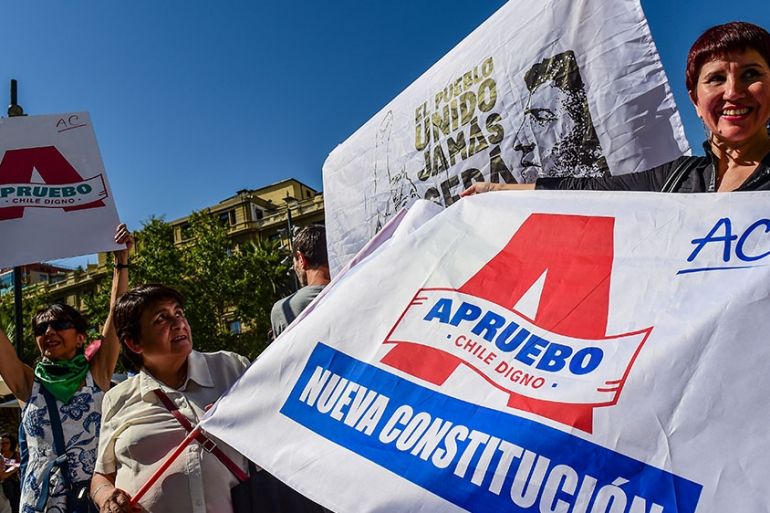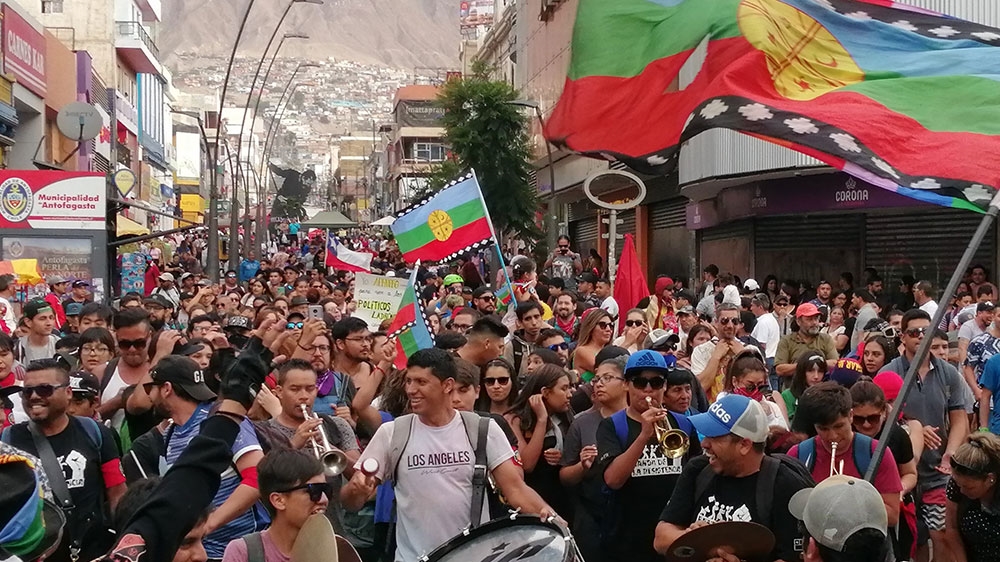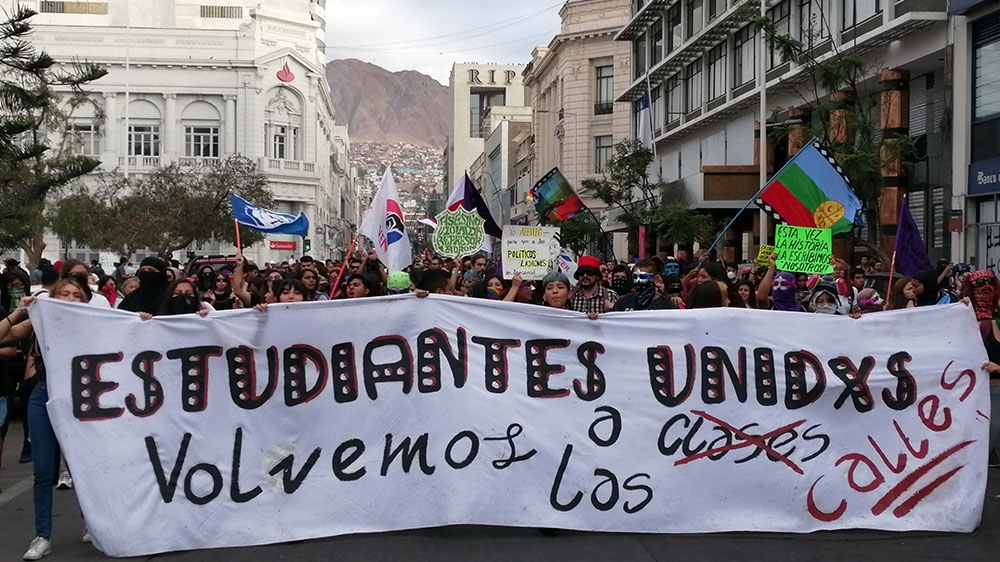Chileans kick off campaign for new constitution
Mass protests against structural inequality are expected to intensify before April referendum.

Antofagasta, Chile – The campaign period for and against a new constitution in Chile officially began on Wednesday, two months before the country’s scheduled plebiscite.
Chileans will vote on April 26 on whether they want a new constitution, and whether they would prefer a mixed citizen-legislator convention or an all-citizen convention to write it.
Keep reading
list of 3 itemsProtests in Chile as Pinera sets April vote to draft new charter
Chile rights abuses at worst since dictatorship: Report
A constitutional assembly to replace the dictatorship-era constitution written during the 1973-1990 rule of General Augusto Pinochet has been a key demand at mass protests against structural inequality that have rocked the country since mid-October.
Roughly 70 percent of Chileans want a new constitution, according to recent polls, and an all-citizen convention is the favoured option.
“It opens up a possibility,” said Roberto Cortes, a primary school music teacher in Antofagasta, 1,335km (830 miles) north of Santiago.
Cortes wants an overhaul of the country’s education, health and pension systems, the top three issues of concern among Chileans.
“We need to vote for everything coming up in April to try to change things in Chile,” he told Al Jazeera.
Election officials said on Tuesday that 2,915 public spaces throughout the country were designated for plebiscite campaign materials, now permitted under strict conditions. Wednesday also kicked off the period for radio and print advertisements, while regulated television airtime is set to begin on March 27.

At ongoing protests, however, signs, banners and graffiti calling for a constitutional assembly have been around for months. Small rallies and graffiti in opposition to a new constitution have also been popping up recently.
Mass demonstrations sparked by secondary school protests in October waned in frequency and size over the summer holidays in the southern hemisphere, but summer break is coming to an end. Between renewed student marches, feminist actions for women’s day, and other plans, protests are expected to intensify next month.
More than half of Chileans believe protests should continue, according to a recent poll by CADEM, a respected polling firm. Chilean President Sebastian Pinera’s approval rating is at 12 percent and his disapproval rating is at 83 percent.
“Restoring public order is our number one priority,” Pinera announced on Monday.
“The country urgently needs a grand national agreement against violence and in defence of democracy,” he said.
The president urged the congress to move forward on the security bills his government presented, including one that would permit military deployment without a state of emergency, in order to safeguard “critical infrastructure”. Episodes of arson, looting and vandalism in recent months have caused billions of dollars of property damage.
“The dividing line here is not between the government and the opposition. It is much more significant and deep. The dividing line is between those who believe in democracy and who want to live in peace and those who practice violence and want to destroy our democracy,” Pinera said.
The government also recently published official regulations concerning military use of force during states of emergency.
The potential for renewed militarisation has raised alarm among human rights advocates. Twenty-three people were killed, including several by security forces, during a nine-day state of emergency in late October. About a dozen others have been killed in the four months since then.
Thousands of protesters and bystanders have been hospitalised for injuries sustained during crackdowns on protests by the Carabineros police force. The National Human Rights Institute, a public entity, has documented 445 cases of eye injuries, mostly from police buckshot projectiles, 197 cases of sexual violence by authorities, and 520 cases of torture or other cruel treatment.

“We have seen that repression has been very intense,” Ayalen Salgado, an 18-year-old national spokeswoman for the Coordinating Assembly of High School Students, ACES, told Al Jazeera.
Salgado and 25 other high school students in Santiago who disrupted contested standardised university admissions exams in January were among the more than 500 protesters now facing charges under a previously seldom-used state security law.
The school year began on Monday in many high schools, and will begin next week in others, along with universities. But for some students, the date marked a return to protests in the streets, not to classes.
Students from several of the dozens of high schools back in session in Antofagasta have engaged in walkouts and protests this week. Broader local marches are also picking up again in advance of March, as are nighttime confrontations between protesters and Carabineros special forces.
“We are many sectors that have united in the struggle for dignity,” said Salgado. “There is no return to normality in this country.”